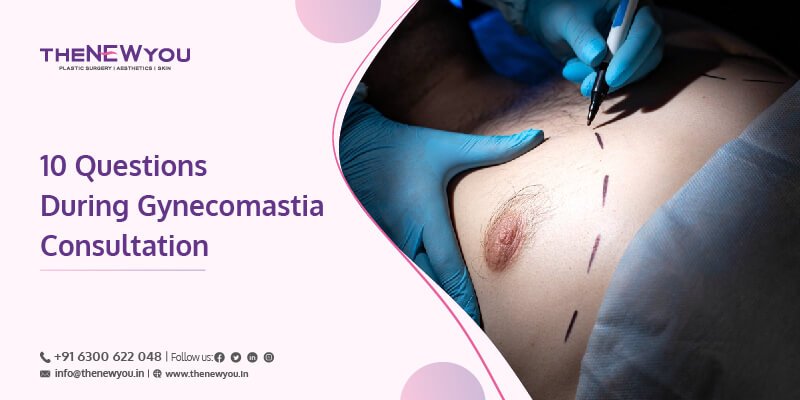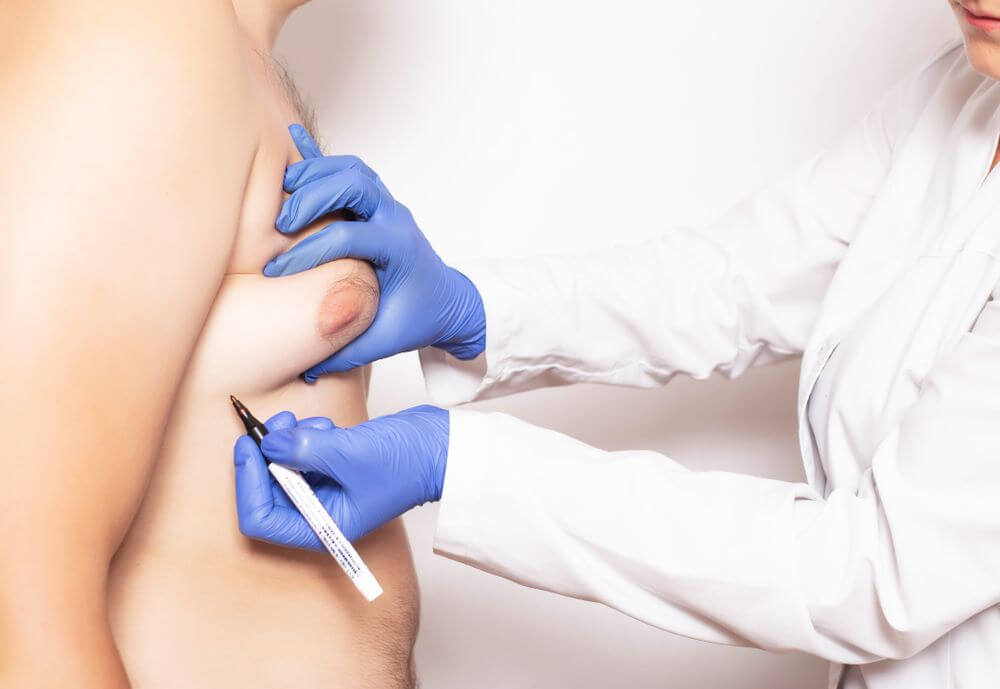When people talk about body image and self-esteem, it’s mainly concerning women. Though, wanting to feel confident in your body applies to every gender. Some men become embarrassed about the excess tissue in their chest. Which often leads them to consider getting a cosmetic procedure done. Start looking for the right surgeon if you’ve decided that surgery is your only option. If you have male breast enlargement, gynecomastia surgery is one of the options available to you.
These are the 10 Questions You Should Ask During Gynecomastia Consultation
The best way to ensure a safe and effective gynecomastia treatment is to choose a board-certified plastic surgeon with high experience in male breast reduction. However, not every surgeon is a good fit for your personality and aesthetic preferences. You will be able to narrow down the best surgeon for your specific results if you choose to take an active role when researching doctors. Slow down and review the credentials and before/after photos of each doctor.
During your first gynecomastia consultation, it is recommended to ask the following questions. After consulting with an experienced doctor, we have compiled a list of questions. Be sure to ask all these questions. Make the most of your consultation appointment. It is your chance to get the doctor’s full attention.
1. What is Gynecomastia?
Gynecomastia is a condition in which the amount of breast gland tissue in boys or men increases due to a hormonal imbalance between estrogen and testosterone. Gynecomastia can develop in newborns, boys going through puberty, and older men due to normal hormonal changes, though there are other causes as well. Gynecomastia can affect one or both breasts in separate ways.
2. Do you have operating privileges?
Always choose a doctor with years, if not decades, of gynecomastia experience. It takes years for a surgeon to hone their skills, so take advantage of a seasoned physician, avoid the newbies. A trusted surgeon will have operating privileges at an accredited area hospital.
If you are uncomfortable with the answers to your questions or how you are treated in the office, do not hesitate to schedule a consultation with a second – or even a third – plastic surgeon.
3. What are signs and symptoms of gynecomastia?
Breast enlargement may be more significant on one side, even if both sides are involved. Gynecomastia is not accompanied by severe pain, although the enlarged area may be sensitive or tender. The following are the gynecomastia signs and symptoms.
- Rigid or firm feeling to the tissue
- Dimpling of the skin
- Retraction of the nipple
- Nipple discharge
- Enlargement of the underarm
4. How long will my surgery take?
The amount of time it takes to heal varies from person to person. The surgery needs around two hours , and it’s only a one-time treatment. One needs to stay in the clinic for three-four hours and after the surgery. You may need 3 to 10 days to resume your normal routine, depending on the type of surgery you had.
5. What should I do before surgery to prepare?
Long before you enter the operating room, the surgical procedure begins. You’ll need to undergo some medical tests to ensure that you’re fit for surgery. You may also need to fill prescriptions, so make sure your recovery environment is set up for easy access. These and other specific instructions will be given to you by your surgeon. For example, you may need to stop taking certain medications before surgery. These rules are in place for your safety, so make sure you follow them to the letter.
6. What type of anesthesia will be used for the procedure?
The surgeon will use either general or local anesthesia, depending on your surgical plan. In most cases, general anesthesia is the only safe and effective option. You’ll be “asleep” during the surgery if you have general anesthesia. You’ll be awake during local anesthesia, but the area will be numb so that you won’t feel any pain. If both options are available to you, your surgeon may discuss the benefits and drawbacks before allowing you to decide.
7. What are the risks associated with surgery?
Learn about the side effects and potential complications of your gynecomastia procedure, as well as how common they are. The following are the most common gynecomastia surgery risks:
- The patient’s reaction to surgical materials
- The dangers of anesthesia
- Asymmetry of the breasts
- Damage to blood vessels or nerves is a common occurrence.
- Pain
8. Will my scars be visible? Where will my scars be located?
Understanding potential scars and how they will appear over time is a part of having realistic surgical expectations. Inquire about scar revision options if your spots seem to be more prominent than expected. Depending on the procedure used by your surgeon, post-surgery scars may be present. This, too, is dependent on your health.
9. How long does the recovery process take?
Healing time varies from person to person. Depending on the type of surgery, you may need 3 to 10 days to go back to your daily activities.
10. How can I maintain my results after surgery?
It’s critical to maintain your perfect results once you’ve achieved them. Male breasts can return because of weight gain, the use of certain substances or medications, and other factors.
To avoid this, speak with your surgeon about the causes of gynecomastia and how to maintain the best possible results.
Infographic: Questions You Should Ask During Gynecomastia Consultation
Consult with Dr. Deepu Chundru at The New You Clinic in Hyderabad
If you consider gynecomastia surgery as the best solution to get rid of the excess breast tissues, you can contact Dr. Deepu Chundru from The New You clinic in Hyderabad. This clinic offers the most affordable gynecomastia surgery cost in Hyderabad. They have a dedicated gynecology department consisting of an experienced surgeon. You can book an appointment with them and explore your treatment options during a gynecomastia consultation.
FAQs
How to diagnose gynecomastia?
A resemblance to the appearance of a woman’s breasts is indicative. It feels like a rubbery lump under the nipple, affecting both. Pain or tenderness in the chest worsens over time, and swelling is two possible gynecomastia symptoms.
What causes Gynecomastia?
The imbalance of the sex hormones testosterone and estrogen can cause gynecomastia. While all men produce some estrogen, their testosterone levels are usually much higher, preventing the estrogen from causing breast tissue to grow. Breast tissue grows as a result of estrogen.













